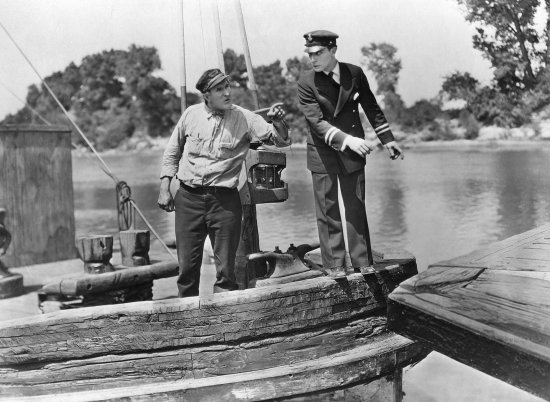
To pick a favorite Buster Keaton is to face a momentous choice, along the lines of having to decide whether you’d like to play with puppies all day or have your favorite person bake a cake for you. But the last of Keaton’s independently made features, Steamboat Bill, Jr., co-directed with Charles Reisner, is a sturdy choice—unlike the storm-battered house façade that famously falls around this most genially hapless of stars, leaving him standing miraculously unscathed. Keaton plays recent college grad William Canfield Jr., who reconnects with the father he hasn’t seen since he was a baby, a crabby steamboat operator (Ernest Torrence) who wants nothing to do with him. Keaton’s William spends the movie alternately defying and trying to win over his father, and ultimately saving him from a deadly storm. (That’s when he also wins his pixiesh lady love, Kitty, played by 16-year-old Marion Byron.) Keaton’s stunts here—including the collapsing house, the most elaborate version of a feat he’d pulled off in earlier movies like One Week—are both astonishing and astonishingly dangerous. Yet there’s so much deadpan joy in them, as if this generally unhappy and somewhat unlucky man had poured his very soul into the physical and mental discipline required to pull them off. His movements are economical and precise, though they appear unstudied. But it’s his inherently serene face that gets you. It’s not the face of a man who can’t believe what’s happening to him, but that of a man who saw it coming all along. It’s a face that will always feel modern.